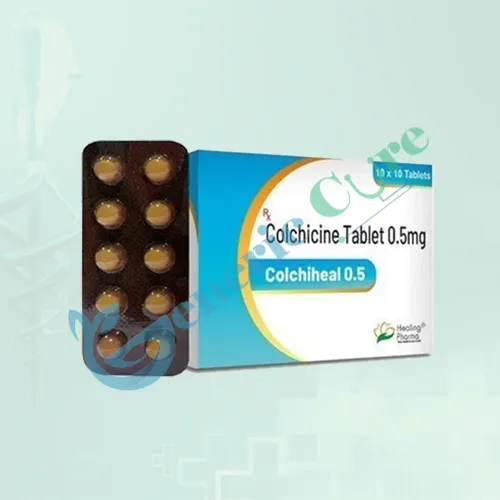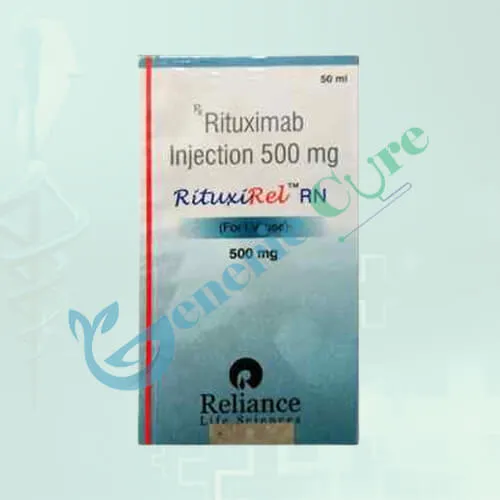Description
Epoetin alfa 2000 iu Injection is a synthetic form of erythropoietin, a protein naturally produced in the body by the kidneys. This medication is use primarily to treat anemia, particularly in patients with chronic kidney disease (CKD), those undergoing chemotherapy, or individuals with certain types of cancer. It works by stimulating the bone marrow to produce more red blood cells, thereby increasing the oxygen-carrying capacity of the blood.
What is Epoetin alfa 2000 iu Injection?
- Composition and Form: Epoetin alfa is a biological drug, meaning it makes for living cells. It comes in various strengths, with the 2000 IU (International Units) injection being one of the more common dosages. It is usually administers via subcutaneous or intravenous injection.
- Brand Names: Epoetin alfa is available under several brand names, including Epogen, Procrit, and Eprex.
Mechanism of Action:
Epoetin alfa mimics the action of erythropoietin, a hormone that regulates red blood cell production (erythropoiesis). When administered, it signals the bone marrow to produce more red blood cells. This is crucial for patients who have low red blood cell counts due to various conditions, helping to alleviate symptoms like fatigue and weakness.
If you need to buy Sirolimus 1 Mg (Rapamycin) you can purchase now our Generic Cure medicine.
What are the Indications for the Use of Epoetin alfa 2000 iu Injection?
- Chronic Kidney Disease (CKD): Patients with CKD often suffer from anemia due to reduced erythropoietin production by the kidneys. Epoetin alfa is commonly prescribe to maintain adequate red blood cell levels in these patients.
- Chemotherapy-Induced Anemia: Chemotherapy can damage the bone marrow, leading to reduced red blood cell production. Epoetin alfa helps mitigate this side effect, improving the patient’s quality of life.
- Anemia in Cancer Patients: In patients with certain types of cancer, especially when associate with bone marrow suppression, epoetin alfa is use to prevent or treat anemia.
- Anemia Due to HIV Treatment: Certain HIV treatments can cause anemia. Epoetin alfa is sometimes prescribe to manage this condition.
- Preoperative Use: In some cases, epoetin alfa may use before surgery to reduce the need for
blood transfusions, especially in patients with low hemoglobin levels or those who is expect to lose a significant amount of blood during surgery.
Dosage and Administration:
- Dosage: The dosage of epoetin alfa varies depending on the patient’s condition, hemoglobin levels, and response to the medication. For the 2000 IU injection, it is often administere once or twice a week, but this can be adjust based on the patient’s needs and lab results.
- Administration: Epoetin alfa give as a subcutaneous injection (under the skin) or intravenously (into a vein). The route of administration depends on the patient’s condition and the physician’s preference. Subcutaneous administration is often prefer for its convenience and effectiveness in maintaining stable hemoglobin levels.
- Monitoring: Regular monitoring of hemoglobin levels is crucial to avoid overcorrection, which can lead to complications. Dose adjustments is make base on these levels to achieve the target hemoglobin range, typically between 10-12 g/dL.
What are the Potential Side Effects of Epoetin alfa 2000 iu Injection?
- Common Side Effects: Some patients may experience side effects such as headaches, body aches, nausea, vomiting, or irritation at the injection site. These are usually mild and temporary.
- Serious Side Effects: In rare cases, epoetin alfa can cause serious side effects, including:
- Increased Risk of Blood Clots: This can lead to deep vein thrombosis, pulmonary embolism, heart attack, or stroke. The risk is higher if hemoglobin levels rise too quickly.
- Hypertension (High Blood Pressure): Epoetin alfa can cause an increase in blood pressure, particularly in patients with chronic kidney disease. Regular monitoring is essential.
- Allergic Reactions: Although rare, some patients may experience severe allergic reactions, including anaphylaxis.
- Pure Red Cell Aplasia (PRCA): This is an extremely rare condition where the body stops producing red blood cells, leading to severe anemia. It has been report in some patients receiving epoetin alfa.
Contraindications and Precautions:
- Contraindications: Epoetin alfa should not uses in patients with uncontrolled hypertension, as it can exacerbate the condition. It is also contraindicate in patients with known hypersensitivity to epoetin alfa or any of its components.
- Precautions: Patients with a history of stroke, heart disease, or blood clotting disorders should use epoetin alfa with caution. It is essential to follow dosing recommendations carefully to avoid increasing the risk of cardiovascular events.
- Pregnancy and Breastfeeding: Epoetin alfa is categorize as a pregnancy category C drug, meaning that it should only use if the potential benefits justify the potential risks to the fetus. It is not know if epoetin alfa passes into breast milk, so caution is advise for breastfeeding mothers.
Interactions with Other Medications:
- Iron Supplements: Epoetin alfa works best when the body has enough iron to produce red blood cells. Patients are often prescribe iron supplements to ensure optimal effectiveness.
- Other Medications: Certain medications, such as those that affect blood pressure or anticoagulants, may interact with epoetin alfa. It is important to inform the healthcare provider of all medications take to avoid adverse interactions.
Storage and Handling:
- Storage: Epoetin alfa should store in the refrigerator at 2°C to 8°C (36°F to 46°F). It should not freeze or be shaken, as this can damage the medication. Before administration, the injection can warm to room temperature by leaving it out of the refrigerator for about 30 minutes. It should not heate using any other method.
- Handling: The injection should be visually inspected before use. If the solution is discolored or contains particulate matter, it should not be used. The injection should be used only once and any remaining medication should be discarded.
Other Pills:
Testorix E 250mg Injection | Decarix 250mg Injection | Testorix-C 250MG INJECTION (Testosterone Cypionate) | Testorix P 100MG INJECTION (Testosteron Propionate) | Masteron 100mg Injection (Drostanolone Propionate)









Reviews
There are no reviews yet.